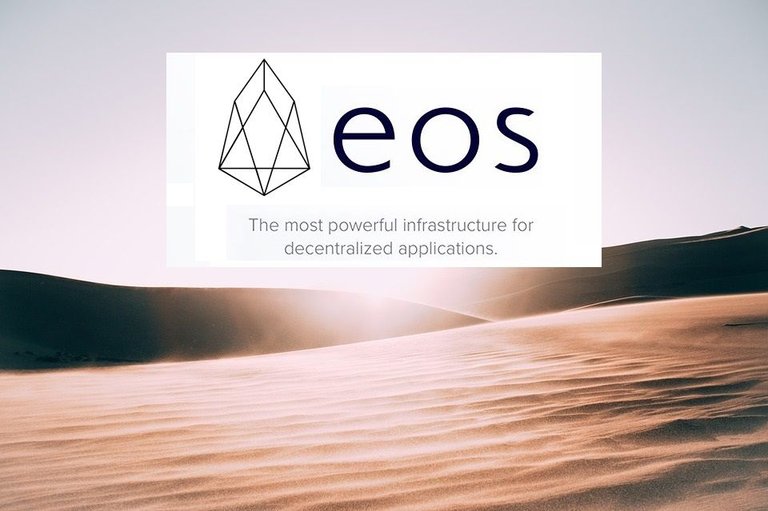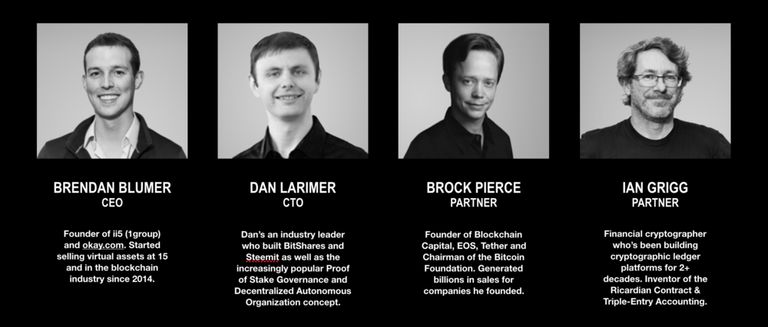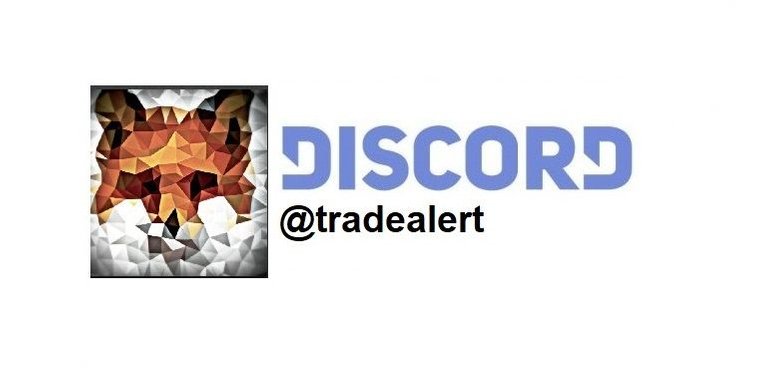Hi investors, Dean (@deanliu) and Dan (@tradealert) are back and today we're talking about EOS.

Executive Summary.
EOS is an open-source project which aims at building the infrastructure for decentralized applications (dApps) at a commercial scale.
The project is being developed by Block.One a Hong-Kong-based software company incorporated in the Cayman Islands and founded by Brendan Blumer. Block.One's chief technologist is Dan Larimer, a veteran block-chain developer responsible for founding Bitshares and STEEM.

Future access to the EOS ecosystem will be allowed via use of EOS tokens which can currently be purchased as IOU ERC-20 tokens from a year-long ICO scheduled to end in June 2018.
On June 1, 2018 at 22:59:59 UTC, ERC-20 EOS tokens will become non-transferable on the Ethereum blockchain and a snapshot of the distribution map will be carried out. ERC-20 EOS tokens will then become redeemable for authentic EOS tokens on any blockchain that respects the snapshot.
786,394,121 tokens out of a total supply of 900,000,000 have already been sold and are trading on secondary markets at a price of $7 USD/unit at the time of writing. 100,000,000 tokens out of the total supply are reserved for Block.one and 700,000,000 will be left for the community to use the platform. Thus far the ICO has raised over a billion dollar in ether, making it one on the most successful in the DLT industry.

Features.
EOS' original architecture gives it five distinguishing features compared to other dApp platforms like NEO or Ethereum.
1. Speed.
All transactions on the EOS network are carried out by 21 elected "super-nodes". Super-nodes can produce valid blocks without having to poll the whole network or wasting millions of dollars in electricity, thus significantly improving the speed of reaching consensus and allowing for tens of thousands of transactions to be processed each second in a permission-less environment.
2.User Accounts.
As in STEEM, EOS users will be attributed account names instead of long addresses. These accounts can be managed with different permission levels. Interestingly, accounts are also bound together by a constitution which makes bad actors legally liable before arbitration for any financial damage they might cause to other users.
3. Fee Model.
Unlike Ethereum which requires gas to process transactions, EOS users only need to stake a few dollars of EOS (which can be either purchased or delegated by wealthy users) to acquire enough bandwidth to run applications or receive services from the network.
4. Governance.
At the protocol level, super-nodes get to decide when to update the network which they can do without forcing a fork. At the application level, block producers also have the ability to update a buggy contract or freeze accounts without affecting other apps.
5. Developer-friendly.
EOS utilizes Web Assembly as a scripting language. This considerably opens developing on EOS to a very wide base of developers and will further improve EOS' performance as an operating system.

Use Cases.
The speed at which the network can process transactions coupled with its focus on user friendliness can potentially allow for high-throughput "commercial" applications such as social media, decentralized exchanges, wiki-based encyclopedia, auction sites or lending platforms to run on a decentralized ledger with the hope that they can repeat the success of Steemit and bring EOS dApps to mass adoption.
You can browse all the projects which are being built on EOS using this directory.
Risks.
1. Small Ecosystem.
In its current state the ecosystem around EOS is still very small compared to its biggest competitor Ethereum. Despite all the hype surrounding it, EOS still has to prove that its technology can attract clients and compete against other hyper-scalable solutions like Hashgraph based Hedera. Although Block.One has been very busy funding joint-ventures charged with helping develop the ecosystem worldwide, so far EOS hasn't been able to secure high-profile clients for its solution the way Zcash (JP Morgan) or Stellar (IBM) have.
2. Plutocracy.
In a series of blog posts, Vitalik Buterin pointed out that dPOS is a consensus mechanism that promotes plutocracy due to the possibility for super-nodes to game the consensus through bribes, effectively allowing them to buy votes from EOS holders to maintain their influence over the network.
Conclusion
EOS is a fascinating technology which offers the promise of bringing block-chain based applications to the mass market. In its current state though EOS is still very much a solution looking for a problem and it remains to be seen if it will be able to bridge the gap with Ethereum and realize the dream of mass adoption.
Despite the enthusiasm of many investors who tout EOS as the next 100-fold-return play, we're yet to see how the token will perform in the long-run as an investment. As a trade though, EOS seems a very good play as speculation and hype leading-up to the launch of the network will probably considerably boost the price of the token.
Cheers.
Dan and Dean
awesome community on Discord. Don't be shy, it's free!!If you liked this post please consider supporting Dan's blog @tradealert and if you're interested in learning more about cryptocurrencies, come join our

Also, make sure to go check out Dan's latest review this time on SpankChain and his interview with Ernie from Trader of Futures.

https://www.google.com/search?q=brock+pierce+scandal
Some S*X scandal there for Brock Pierce, child abuse ring...alleged Pedophile - Hmm. Seems to be quiet a lot there!
His involvement was definitely a PR mistake but I don't think it's fair to entirely dismiss the project because of that.
Oh no. Not at all. EOS is beautiful, from what i have thus far read. Forgive me, i am not so crypto savvy, but i have recently read a lot. And EOS is up there in the talk. It seems to portend a lot of prospects, a lot of possibilities. That is not to be taken away.
No worries mate :)
Excellent argument. I am pro EOS tech and am thinking of investing but haven't because of concerns about the need for so much cash. I think they had no idea they would raise even close to this amount of funds (thought it was more like 2 billion) and EOS doesn't have a convincing argument as how to allocate the funds effectively. Ethereum managed to do more with a fraction of the funds and so have other competitors like Stellar or possibly Cardano. I want to see an updated plan for the capital they have raised that isn't vague like "using 1 billion to push EOS" Why do they need 2 to 3 billion and what will excatly will they do with it?
I prefer the dual layers of Cardano or the possibility of IOTA working better as a replacement for Ether. Here is a link to my post with 9 positive facts about EOS. Upvoted and followed.
Great recap! I agree with your thoughts. Why have they choose to have such a long ICO? I'm a bit invested, but have my doubts as well.
No one,and don't lie had an idea that after going up 4 fold since January, Ethereum and the market would more than 10x or even 30x plus. They raised much more funds than projected or intended and I'm leary that they didn't adjust or close their model. It's an experiment I refuse to be a part of.
Agreed @crypticat, Block.One hasn't been very transparent about how they will use the ICO funds. We know they haven't been used to fund the development of EOS and that some of it is being allocated to VC funds and incubators... but not much else.
Hi @etka, the idea behind the long ICO is to allow as wide a distribution as possible as well as leaving the market price the token relative to the development of the project. It's a good idea imo but Block.One hasn't been very transparent as to how the funds would be managed.
Electronic currencies have become very much
But it seems that this work has a great future
Really very wonderful information
I wish you a happy weekend
Thanks @roselover, crypto-currencies have become very much indeed
Your posts are very good, do you have a Discord group?
Hi @keugalak, we do: https://discord.gg/N6zv8TN
Ok,
Just so you know @keugalak, you were banned from the Discord, we don't like spammers over there
What is a spammer?
Someone that spams, like you did on the Discord channel. Look it up.
Heheh, sorry he is ,. I do not know. Because I'm a Beginner. Once again I apologize
good post
Thanks @jihun43
Brock Pierce and the EOS project have since went separate ways with mutual agreement.
Thanks for the correction @newageinv :)
Not a bad time to promote EOS.
Yep @fr3eze, we're only a month an a half before launch :D
That would kinda be like shooting themselves in the foot since the EOS token holders hold the coins.
Hi @hedge-x, I recommend you read the full post from Vitalik: https://vitalik.ca/general/2018/03/28/plutocracy.html
I understand. I have been with Ethereum since the early days. Vitalik is probably my favorite Crypto person. He has a great understanding of Crypto economics but I will say EOS is a game changer b/c it allows high performance transactions now and its also going to have developer/user features built-in to make it more friendly. I just see them as two competing systems with there own strengths like Windows and Mac.
Steem also works on delegated proof of stake like EOS will. I don't believe anyone can call Steem centralized. Right now its impossible to run a popular dapp like Steem on Ethereum. ETH development has many ways which they plan to scale but it may take up to two years before they all get implemented, while EOS will scale right out of the box.
I think 'Caiman Islands' should be 'Cayman Islands'
thanks. edited.
you're welcome
thanks :)
You're welcome